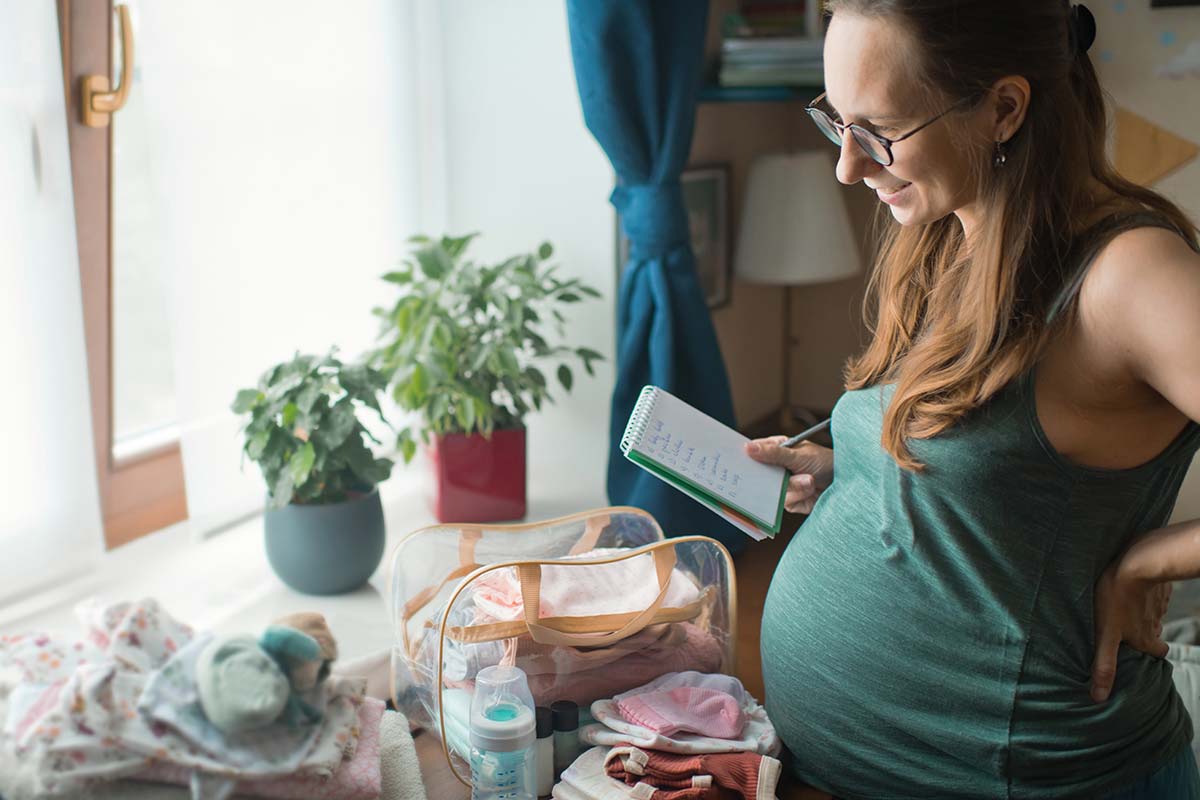Hospital bag essentials checklist: what to bring

If your due date is just around the corner, you may be feeling both excited and nervous. Those feelings are natural, whether it’s your first child or your second or third.
Being prepared can help you feel calmer and more focused. That includes having your hospital bag packed and ready to go. But what do you really need? Here's a list of essentials that covers you and your newborn, as well as a support person who may be joining you at the hospital.
What mom needs to bring to the hospital
Hospitals have pads and disposable underwear, so there’s no need to pack those, says Natalia Hailes. She’s a doula and co-author of Why Did No One Tell Me This? The Doulas’ Honest Guide for Expectant Parents. Instead, save room for things that make you feel more at home, she says. Items to consider include:
- ID and insurance card. Your hospital will likely require a photo ID when you check in. It’s also a good idea to keep your insurance card on hand.
- Your birth plan. This document outlines what’s important to you during labor and delivery. Do give it to the staff, but also make a copy for your support partner or doula so they can remind the nurses and doctors about your preferences as labor progresses, notes Hailes.
- A robe or nightgown. You’ll labor in a hospital gown, but you’ll want something comfy for later. And if it opens in front, even better for breastfeeding.
- Slippers or socks. These will come in handy if your feet get cold or swell after delivery.
- Lip balm. Your lips might get dry during or after the pushing stage of labor.
- Your favorite pillow and eye mask. These can make it easier for you to get some rest.
- Distractions. “Childbirth can be long,” notes Hailes. Bring books, magazines, a tablet for watching movies or playing games, or a wireless speaker to play music, she suggests.
- Snacks. You may not be allowed to eat during labor or may not feel like it. “But having some healthy snacks is good for postpartum,” says Hailes.
- A nursing bra. You’ll need this if you plan to breastfeed.
- A breast pump. “The baby may not feed long enough those first few days. So you want to pump 10 to 15 minutes on each side to expedite the letdown of breast milk, which typically happens around day 3,” says G. Thomas Ruiz, M.D., lead ob-gyn at MemorialCare Orange Coast Medical Center in Fountain Valley, California. Eligible UnitedHealthcare members may request a breast pump.
- A birthing ball or peanut ball. These are large exercise balls made of PVC, like the ones found in gyms. “Movement is key during labor, and a birthing ball will make moving a lot more comfortable,” says Hailes. If you get an epidural, you can put the peanut-shaped ball between your legs. Before packing your own, check if the birthing unit has them. Many do, says Dr. Ruiz.
- Toiletries. Have a toothbrush, comb, deodorant and something to keep your hair back if you need it.
- Phone charger. You’ll want to be able to keep your friends and family updated and to contact your support person in case they need to step away.
- A comfy, loose outfit for going home. You don’t want clothes that are tight around your lower abs, especially if you’re recovering from a C-section, says Dr. Ruiz.
What the baby will need at the hospital
You won’t need diapers or wipes, as hospitals have them. But do pack the following items:
- An outfit for going home. Skip the socks and get a stretchy, easy-to-put-on onesie with feet. Generally, you want to dress your baby in 1 more layer of clothing than adults would need.1
- A going-home blanket. Hospitals have blankets for your baby’s stay.
- A rear-facing car seat. Install it a couple of weeks before you go to the hospital.2
- A pacifier. Most hospitals give these out, but pack one just in case.
What your support person will need at the hospital
Your support person will probably be able to stay overnight during your hospital stay, as most hospitals allow this, says Dr. Ruiz. Even if the hospital doesn’t, your birthing partner still needs a bag for the following:
- Photo ID. The hospital will likely require a photo ID at check-in.
- Snacks. “Labor’s a long process, and nobody’s getting much sleep,” notes Dr. Ruiz. Your support person will need fuel too.
- Books, magazines or a tablet. Your support person will need something to do while they’re waiting.
- Comfy clothes, including a warm sweatshirt. “Hospitals can be cold at night,” says Hailes.
- A camera. Most people use their phones, but a camera is a good idea if you want more professional-looking images.
- Phone charger. Your support person can keep friends and family updated and will be able to stay in touch with you in case they need to step away.
- Blanket, bedding and pillow. Sometimes the ones at the hospital are too thin, and some hospitals may not provide blankets or bedding for the support person.
- Toiletries. "Bring the basics, such as a toothbrush and toothpaste, deodorant and anything else your support person wants to have on hand to feel more comfortable," says Dr. Ruiz.
- Spare glasses or contact lenses (or both). Just in case — it’s good to have a backup.

